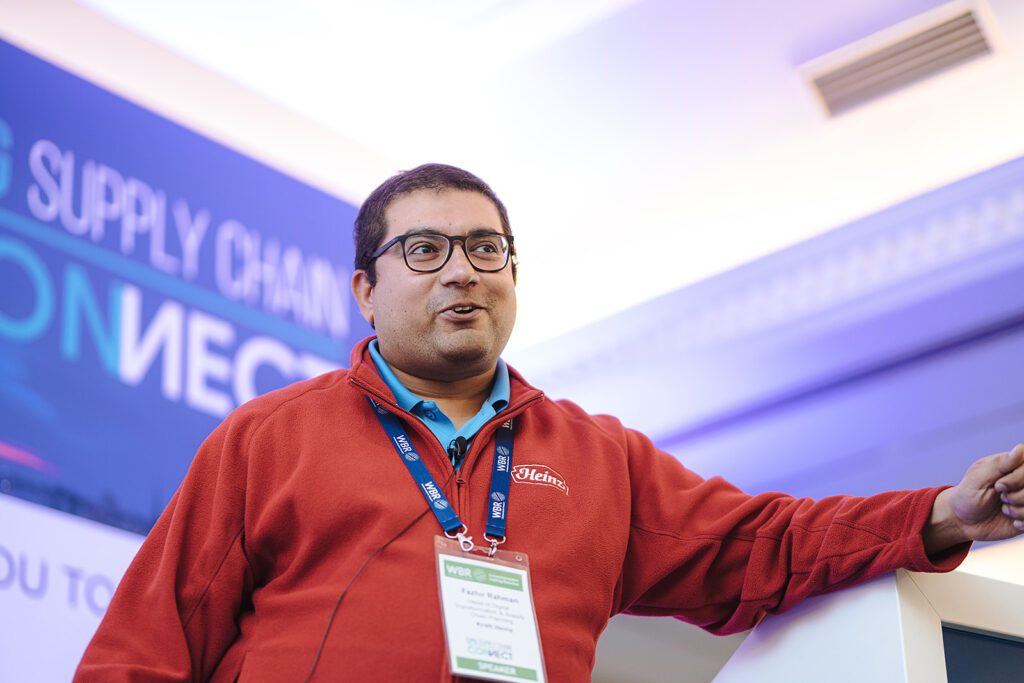Fazlur Rahman is a consumer packaged goods industry and supply chain thought leader. With a professional career spanning across North America and Europe, Fazlur is currently responsible for Global Demand Planning and Digital Planning Transformation at Kraft Heinz Food Company.
We taped into his supply chain passion with some quick fire thoughts.
Fazlur, How did you get into Supply Chain?
Supply Chain has been a passion for me since my freshman year in college. I managed logistics for a large student-run event, followed by an internship in the outbound logistics department at a large packaging firm. What I loved about the supply chain is there is never a moment of boredom. There is always a problem to solve, big or small, and it requires different problem-solving approaches and mindset all the time. Supply Chain has problems across the value chain of any business, and solving those has implications on upstream and downstream processes, and partners. Complexity and dependencies make it fun.
As I experienced it first hand during college, I took a course on it, and later on, focused on supply chain management during my MBA. I also participated in internships at a pharmaceutical company’s sourcing department which had long lead times, worked at a 3PL’s sales department, and experienced replenishment while working at a university bookstore. Eventually I landed at the large food and beverage company, Heinz in Pittsburgh, USA, right when its merger was announced with Kraft. Since then, it has been an incredible journey across 2 World Headquarters in Pittsburgh and Chicago and now in Global Operations in Amsterdam, with 6 roles in last 8.5 years.
Was your perception of the Supply Chain different to reality? How has Supply Chain and the expectations placed upon it changed over time?
Not really. Since I experienced it first hand in college and also during the very practical internships, my perception was built based upon the reality. I managed purchasing to setting up stages to scheduling labour, at a young age of 16 and even became CEO / Convener of a small organization at the age of 19. What I would say is different is that the reality itself has been evolving over the years. Complexity and the problems of supply chain change due to many factors like consumer and customer preferences, geopolitical, environment etc.
The expectations have indeed changed. Supply chains have more and more pressure as this function has significantly matured, which means it has become a means of gaining competitive advantage. Even some large organizations are partnering with the consulting firms to sell their supply chain operating model knowledge, training and programs, which we could never have imagined 20 years ago.
How do you feel Supply Chain is perceived in general? Why is this?
It used to be perceived as something like moving boxes from one place to another. Some people had misconceptions that it is just logistics or just manufacturing. It is everything which “makes thing happen.” No matter what kind of goods and services are being provided, there is an element of supply chain from purchasing to producing to distributing. Each organisation also defines it differently and can be structured differently. Some organisations even have separate functions, and not integrated ones. I would say, anything which touches the value chain along with the movement of goods is supply chain in layman words. That is how it should be perceived. Once we perceive this way, supply chain automatically gets upgraded. We have seen how post-pandemic supply chains have been elevated in the eyes of the executive boards.
What should Supply Chain do better?
One thing: continue to work on improving end to end visibility of overall supply chain, which includes data flows (suppliers, own operations, customers), so effective decision making can be done.
Supply Chain wants the proverbial seat at the table. What does it need to do to earn that seat? What can procurement achieve with this seat?
It has already earned the seat at the table, and any organization which removes supply chain and procurement from the table, will have risk at the time of any crisis. Instead, if supply chain continues to be considered important, those organisations will gain competitive advantage while the other organisations will lose focus on it.

